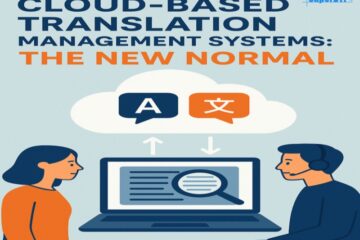In today’s globalized world, reaching people from different countries and cultures is essential. Whether it’s a marketing campaign, a book, or a business document, communication across borders is now more common than ever. However, effective communication isn’t just about translating words from one language to another—it’s about understanding the cultural context behind those words. This is where recognizing cultural nuances in translation becomes vital.
Ignoring cultural differences can lead to misunderstandings and, in some cases, failure to convey the intended message. Let’s explore why cultural nuances in translation matter and how they impact global communication.
What Are Cultural Nuances?
Cultural nuances refer to the subtle differences in behavior, beliefs, and traditions that set one culture apart from another. These can include anything from humor, gestures, and etiquette to social norms and religious practices.
Something humorous in one culture might be seen as inappropriate or offensive in another. Similarly, a gesture that is positive in one part of the world may have a different meaning elsewhere. These small details, often missed by people unfamiliar with a culture, can significantly affect how messages are interpreted.
The Role of Culture in Language
Language is deeply tied to culture. Words often carry meanings that go beyond their direct translation, and certain phrases or expressions can be particularly difficult to translate due to their cultural roots.
Take idiomatic expressions, for example. The English phrase “it’s raining cats and dogs” doesn’t make sense if translated literally into another language. A translator must understand that this expression means “it’s raining heavily” and convey that meaning in a way that fits the cultural context of the target audience. Without accounting for cultural differences, translations may end up being confusing or alienating.
The Impact of Misunderstanding Cultural Nuances
When cultural nuances are overlooked, communication can break down. This is especially true in marketing and business contexts. Companies launching international campaigns can risk offending or confusing their target audience if their message isn’t culturally appropriate.
Everyday misunderstandings due to cultural differences can also affect personal relationships, business negotiations, or legal matters. This is why professional translators with knowledge of the target culture are essential to ensure clear and accurate communication.
Localization vs. Translation
While translation focuses on conveying text from one language to another, localization takes it a step further by adapting the content to suit the cultural and contextual needs of the target audience. It adapts content to fit the cultural, social, and linguistic norms of the target audience.
For example, localizing a website doesn’t just involve translating the text but also adjusting elements like currency, date formats, and measurement systems. A localized translation ensures that content is not only understood but also resonates with the audience culturally.
Why Cultural Nuances Matter in Business
In international business, understanding cultural nuances is crucial for building trust and forming meaningful connections. Failing to consider cultural differences can harm relationships with clients and customers, or even damage a brand’s reputation.
Small details, such as the meaning of colors or the style of communication, can significantly affect how a message is received. For example, direct communication is preferred in some cultures, while others favor a more indirect approach. A translator who understands these preferences can help ensure that the message aligns with the target culture’s expectations.
Cultural Sensitivity in Legal and Medical Translations
In specialized fields like legal or medical translations, understanding cultural nuances is even more important. A simple mistranslation in a legal document can lead to misunderstandings or even disputes, while errors in medical translations could result in serious consequences for patient care.
Having a translator who understands not only the language but also the cultural and legal context is essential to avoid potentially harmful mistakes.
The Importance of Hiring Professional Translators
Given the complexity of cultural nuances, relying on machine translation tools like Google Translate is insufficient for important tasks. While these tools may provide quick translations, they often miss the deeper cultural meanings behind the text.
Hiring professional translators with cultural expertise ensures that your message is translated accurately and appropriately. These experts are trained to recognize and adapt to cultural differences, ensuring that the content isn’t just translated but also aligns with the cultural expectations of the audience.
Conclusion
In a world that is increasingly interconnected, understanding cultural nuances in translation has become essential. Whether you are communicating with global business partners, launching a campaign, or trying to reach a diverse audience, recognizing cultural differences is key to success.
Ignoring cultural nuances can lead to miscommunication, misunderstandings, and even harm to your reputation. On the other hand, culturally sensitive translations build trust, foster relationships, and help ensure that your message resonates with people across different cultures. Investing in professional translation services that prioritize cultural understanding is a smart move for anyone looking to expand their reach globally.
Super DTP Ltd is a specialized desktop publishing agency located in Gabrovo Bulgaria, offering book publishing, multilingual DTP, and E-learning localization services to translation agencies and localization companies worldwide! Check our services at www.superdtp.com or contact us at dtp.bulgaria@gmail.com for further details
